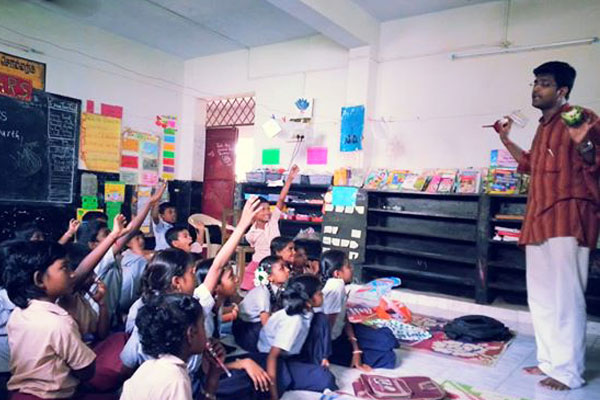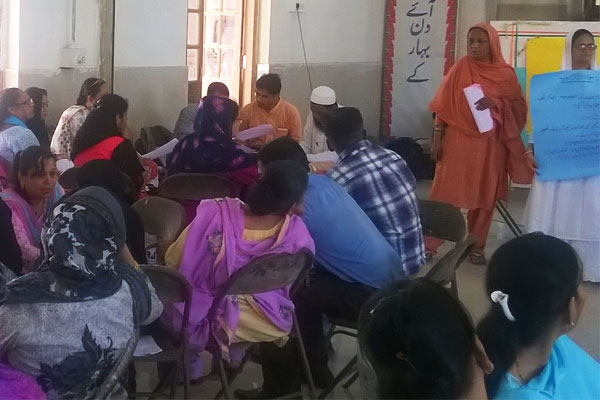
In the past decade, India has done a great job in increasing student enrolments in primary schools. With a strong focus on ensuring a school for every child within 5 kms and introduction of schemes such as Sarva Shiksha Abhiyan, Mid-Day Meal and Right To Education Act (RTE), primary school enrolments have risen significantly. However, in 2012-13, there was a huge percentage dip in enrolments across government schools, for which, shifting of children to private schools was considered a major reason.
Source: DISE (District Information for System Education)
Inspite of impressive school enrolments, the quality of education in government schools has been deplorable and unaccounted for. A World Bank and Harvard University study estimated that in India, on any given day, one out of every four teachers is absent.
However, with the advent of some NGOs and passionate individuals, the situation has started improving. In 2009, the Teach For India (TFI) fellowship, modelled on the Teach For America model, was launched to channel talented young professionals and graduates to teach in low income schools for 2 years. Initially just in Pune and Mumbai, the program has been a huge success and is present in seven cities now. Having started with just a handful of schools in Mumbai, Teach For India now has fellows in 53 schools spread across the length and breadth of the city.

A Teach For India Fellow teaching a classroom in Dharavi
In 2010, the Brihanmumbai Municipal Corporation (MCGM), launched the School Excellence Program (SEP), a first of its kind city-wide school transformation program in the country. Supported by various partners such as McKinsey, Naandi Foundation, Save The Children, Kaivalya Education Foundation and others, the program has been scaled to 148 schools which include Urdu, Hindi and Marathi medium schools.
However, despite the involvement of big partners, the program outcomes have not been impressive. Last year, during a meeting of partners, it was revealed that the performance results of the students have increased by just 12% in 2 years, following which a decision was taken to scrap the program. It was decided that 2014-15 will be a transition year, during which the NGOs would hand over the program to the teachers and officials who will then run the program themselves from the next academic year onwards.

A School Excellence Program training program for teachers
Apart from Teach For India’s intervention and the School Excellence Program, there have been many public–private partnership programs by NGOs such as the Akanksha Foundation, Muktangan, Children In Progress (CHIP) and others in Mumbai who have been working for many years in the city. Moreover, many new entrepreneurs are also setting up camp in the city. In 2012, Gaurav Singh, a former Teach For India fellow, launched the 321 Foundation School, which uses an old government school building in Crawford market to run its operations.
No other metropolitan city in India has as many NGOs working with government schools simultaneously. Mumbai has been a favourite hotspot for education organisations mainly due to the openness of MCGM to public–private partnerships and I believe it should not squander any opportunity to be a public–private partnership model city. But after the failure of the School Excellence Program, should the MCGM be more careful and risk averse? A lot of money and resources were put in for the School Excellence Program and being the first of its kind, it was definitely a valiant effort. Irrespective of its failure, MCGM should keep their focus on the learnings and leverage them in the future while working with other NGOs.
Mumbai has a golden chance to set the benchmark for public–private partnership education in India which will inspire other cities to take a cue from. Given BJP’s strong affinity towards the private sector, getting clearances and permissions for such projects shouldn’t be a tough nut to crack. Vinod Tawde, the new state education minister, has already voiced his intention to amend some rules of the Right To Education Act, which are detrimental to the basic idea of the Act itself. Having an energetic and educated Chief Minister Devendra Fadnavis, Mumbai should utilise its full potential and develop itself as a public–private partnership model city for education, which will hopefully bring acche din for many unfortunate kids in the municipal schools.
Devanik Saha is Data Editor, The Political Indian. Previously, he has worked with Monitor Deloitte, World Bank, Teach For India and in the Office of MP Anurag Thakur.